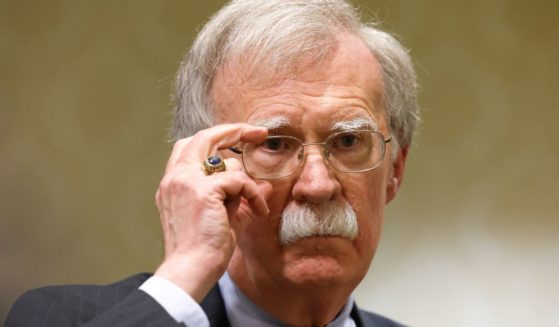
United States Ends Military Drills with South Korea Amid Denuclearization Talks
A spring military exercise between the United States and South Korea has been canceled, officials said Saturday.
According to a Pentagon statement, Secretary of Defense Patrick Shanahan and his South Korean counterpart, Minister of National Defense Jeong Kyeong-doo, “decided to conclude” the annual Key Resolve and Foal Eagle exercises and will instead stage smaller drills.
North Korean leader Kim Jong Un has expressed displeasure over the drills, claiming they are a rehearsal for an invasion of his country. Kim met last week with President Donald Trump in Hanoi, where the two leaders could not come to terms on an agreement.
Trump framed the lack of an agreement as one more step on a long road of dialogue.
Great to be back from Vietnam, an amazing place. We had very substantive negotiations with Kim Jong Un – we know what they want and they know what we must have. Relationship very good, let’s see what happens!
— Donald J. Trump (@realDonaldTrump) March 1, 2019
He also said canceling the drills made sense.
The reason I do not want military drills with South Korea is to save hundreds of millions of dollars for the U.S. for which we are not reimbursed. That was my position long before I became President. Also, reducing tensions with North Korea at this time is a good thing!
— Donald J. Trump (@realDonaldTrump) March 3, 2019
The Pentagon also noted that it was time to give diplomacy a chance.
“The Minister and Secretary made clear that the Alliance decision to adapt our training program reflected our desire to reduce tension and support our diplomatic efforts to achieve complete denuclearization of the Korean Peninsula in a final, fully verified manner,” the Pentagon said.
The two nations will “maintain firm military readiness through newly designed Command Post exercises and revised field training programs,” the Pentagon added.
The Associated Press reported that the new exercises that will take place between South Korea and the U.S. will start Monday and last for a week.
The new drill will focus on “strategic operational and tactical aspects of general military operations on the Korean Peninsula,” South Korea’s military and the U.S.-South Korean command said in a joint statement.
The biggest change is that instead of involving thousands of troops, the exercises will feature smaller drills, tabletop exercises, simulations, and units at the battalion and company level.
The focus of the training will include integrating airstrikes with other weapons systems, drones, surveillance assets, logistics and communications
Trump, as he has in the past, called the massive drills very expensive. Last year, after his initial summit with Kim, Trump suspended the summer exercises between the two countries.
“Those exercises are very expensive,” Trump said last week. “And I was telling the generals — I said: Look, you know, exercising is fun and it’s nice and they play the war games. And I’m not saying it’s not necessary, because at some levels it is, but at other levels it’s not.”
Ending the drills drew criticism. As noted by The Western Journal, North Korea has maintained its missile sites even after the initial Trump-Kim summit.
“North Korea will likely use this as something they earned from the recent negotiations with the U.S.,” said Baek Seung-joo, a South Korean lawmaker and former vice defense minister, according to Bloomberg. “This clearly shows a weakened U.S.-South Korea military readiness when you are not conducting these drills, as the Foal Eagle was a practice of how the U.S. forces would be deployed to South Korea in the situation of a crisis on the peninsula.”
Another commentator said this could be seen as a first step by the U.S. that might get a response from North Korea.
“North Korea could receive this as a reciprocal measure that the U.S. decided to take because North Korea is no longer conducting missile and nuclear tests,” said Kim Hyun-wook, a professor at the Korean National Diplomatic Academy.
Truth and Accuracy
We are committed to truth and accuracy in all of our journalism. Read our editorial standards.
Advertise with The Western Journal and reach millions of highly engaged readers, while supporting our work. Advertise Today.












